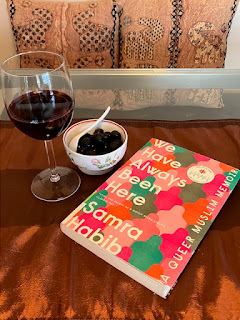One Story Becomes One Stereotype
Ever have one of those weeks when everything you hear, read
or watch seems to be connected in some way? Like there’s an invisible thread
linking things together.
This week:
What I heard: Large workplace meetings can be
excruciatingly boring. You know those ones where they update you on what has
been achieved (rah rah) and plans for what is to come (yawn). But at one such
meeting this week they played a clip from a Ted Talk by Nigerian writer Chimamanda
Ngozi Adichie.
I was riveted. She spoke about the dangers of a single
story. How, when a single story about a people, a country, a race, is fed to us
over and over again, it becomes what we believe. This is what creates
stereotypes. We may see the whole continent of Africa and its people as poor
and illiterate. We may view Africa as a dangerous place. And when we meet someone
who comes from there, our opinions have already been formed. We look upon the
person with pity, with a patronizing, western view. One single story told over
and over, by people in power, becomes the defining story of a group of people.
That’s how stereotypes are created.
What I’m reading: WE HAVE ALWAYS BEEN HERE by Samra Habib. A Queer Muslim Memoir. I picked this up from my reading pile this week because it’s one of two books left from my last library haul. The book begins with a short, evocative first sentence that pulls you in: We both had shaved heads. (However, as Habib goes on to say, she was a child, and hers was shaved because of head lice).
Habib comes to Canada as an immigrant from Pakistan, and immediately faces the challenges of racism, poverty and insults being hurled at her, that old slur, Paki. These are from people who have, of course, already formed their opinions of what a Muslim from Pakistan must be.
This quote from the book encapsulates it: “Our understanding of the interior lives of those who are not like us is contingent on their ability to articulate themselves in the language we know. The further removed people are from proficiency in that language, the less likely they are to be understood as complex individuals. The audience often fills in the blanks with their own preconceptions.”
What I watched: I won tickets to a Canadian film that previously played at TIFF (Toronto International Film Festival). It was shown locally here in Oakville, and after the showing there was a Q&A with a couple of the actors and one of the producers. The movie was quiet, beautifully produced, and filmed in Orillia cottage country north of Toronto.
In SOMETHING YOU SAID LAST NIGHT, a family of Italian background goes on vacation, two middle-aged parents and their two daughters, one of whom is trans. But here was the beauty of the movie: It did not rely on stereotypes. There was no specific emphasis on the struggles of a trans person, or a conventional, unaccepting, conservative Italian family. It normalized being trans by focusing instead on the strong current of love that ran between the four, despite the somewhat over-bearing mother and the quarrels that occur in any family on vacation, spending a week in cramped quarters. How refreshing to see a movie that did not tell the same, single story of a stereotype.
What I’m Thinking: is how important it is for us to read and listen to more stories of people who do not look like us, speak like us, or come from the same background. We are inundated in the west with books and movies that feature mostly one kind of person, one kind of look.
When we allow ourselves to be fed single narratives by
others, by people in power in the mainstream, then we are in danger of stereotypes
and preconceptions taking root in our minds.





Pearl, a lovely post. "It is [important] for us to read and listen to more stories of people who do not look like us, speak like us, or come from the same background." I had a similar thought, but it came more of a self-chastisement, after my post about my TV habits. Writing it out forced me to see how much everything I watched looked like me. My reading has always been more diverse, but I. had to make more of an effort in my viewing (and still must).
ReplyDeleteOn a roll here Pearl. This post intrigued me because I started to wonder about the stories we tell ourselves as well. Or a story that is told to us about ourselvess that becomes a huge part of what we believe as true. I certainly believe that one story can become our true perception of something and that it is completely invalid. Maybe our story telling needs a close reckoning.
ReplyDelete